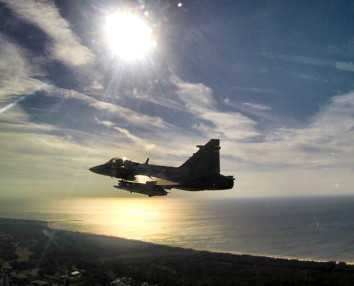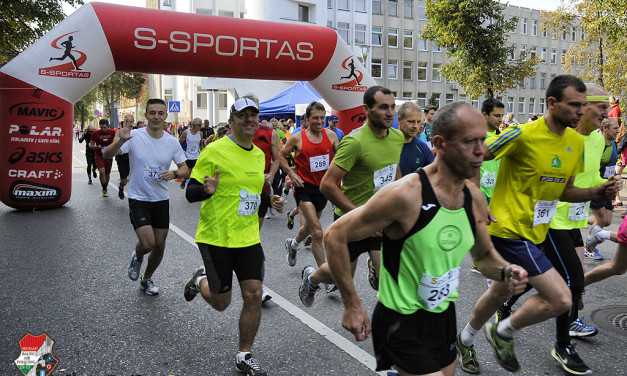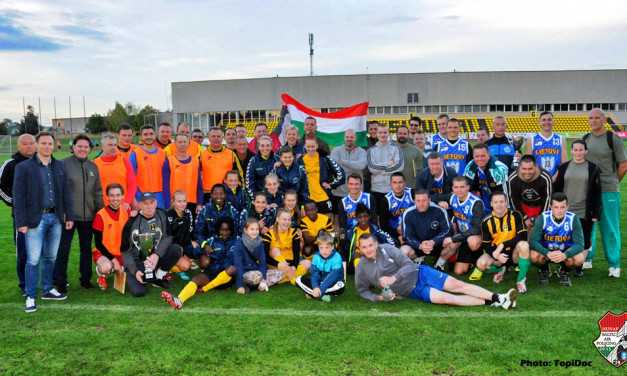A Hundred Hours Over the Baltic Countries
Szöveg: Lt. Andor Gyeginszky | 2015. október 2. 9:00The Hungarian contingent deployed in Lithuania has flown over 100 hours so far. From September 2015 to January 2016, the Gripen fighters are performing air policing tasks in Estonia, Latvia and Lithuania in the spirit of NATO’s collective defence. The frequency of tasks is shown by the fact that the Hungarian pilots have flown the four Gripens for over 100 hours in three weeks, earning words of praise for their activity so far.
Galéria

Starting on 1st September, the first weeks of the Baltic Air Policing (BAP) mission were eventful indeed. The Hungarian fighters and their pilots had Alpha scrambles (live alerts) several times, but mostly flew Tango scrambles (practice flights). The missions they practiced included high-altitude interception and familiarization flight near the backup air bases. Most Alpha scrambles were ordered by the NATO Combined Air Operation Center (CAOC) in Germany to identify and escort aircraft without flight plans.
So far, the frequency of Alpha (live) scrambles has been lower than predicted, but the Hungarian Gripens have already taken off to intercept several times more aircraft than the average number in Hungary. In the interest of sustaining continuous and safe quick reaction alert (QRA) capability of the aircraft, it is necessary that the ground crew can precisely and smoothly do its job of technical servicing. Thanks to the continuous work of the aircraft maintenance technicians who fully comply with the safety regulations, the Hungarian Gripens can immediately take off in case they are scrambled. The reliability of the Gripens and the attitude of the ground crews are well shown by the fact that no tasks have had to be cancelled due to malfunction since the start of the service.

Drawn mainly from the unit of Kecskemét, the activity of the contingent draws a lot of attention, so groups of visitors regularly arrive at the air base near Siauliai, and the Hungarian team has been invited to participate in a number of significant municipal events. The Hungarians have already participated in a running race organized for the birthday of the town, and accepted an invitation to a football tournament. Besides social relations, they draw intense interest from professionals too, as commanders and chief master sergeants of the Estonian, Latvian and Lithuanian air forces have already visited the QRA duty service. The commanders were satisfied with what they had seen and praised the Hungarians’ service and training standards. During the visit, the chief master sergeants of the three Baltic states were briefed by their Hungarian counterparts about the NCO training and promotional system as well as the career path model in the Hungarian Defence Forces.
The Hungarian pilots have earned recognition from the NATO Combined Air Operation Centre (CAOC) in Germany too. The superiors pointed out that the team is highly motivated, as evidenced by the readiness of the QRA pilots to fly another mission after landing at a much shorter notice than prescribed. They also praised the fact that the Hungarians react with exemplary quickness to the alerts in under the allotted time.

In the interest of professional development and increased flight safety, the contingent made a trip to Palanga, a base of rescue helicopters operated by the Lithuanian Search and Rescue (SAR) service. The rescue of pilots in distress is done by NATO procedures, but it is also useful if the members of the SAR team personally introduce their equipment and the national policies. Thanks to the crews of these specially equipped helicopters, the Hungarian pilots obtained first-hand information which is of critical importance in emergencies.
Since September 2015, more than 80 Hungarian airmen with four JAS-39 Gripen aircraft have been performing air policing tasks for more than four months over the Baltic countries as lead nation of the Baltic Air Policing mission with Germany under NATO command. The BAP mission is needed because Estonia, Latvia and Lithuania do not have fighter planes, so since their accession to NATO in 2004, in the spirit of collective defence, the allies have been protecting their airspace in four-month rotations. Hungary is participating in this mission for the first time, but it has undertaken to deploy its Gripens again for another four months in the region in 2019.

Photos: Lt.-Col. Dr. István Toperczer and the author (BAP)



































